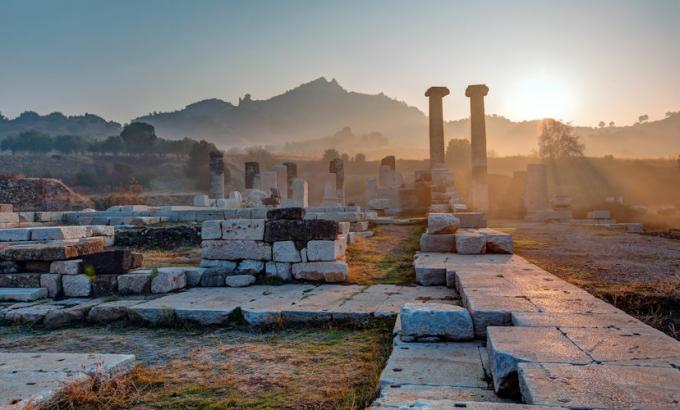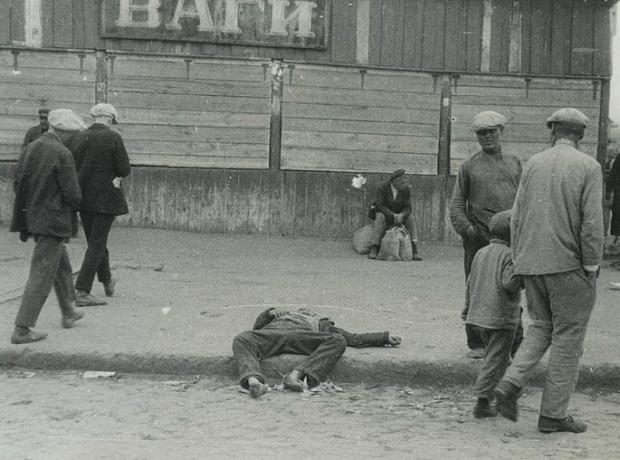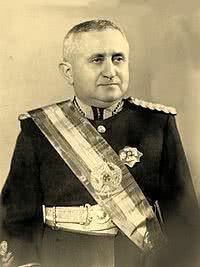O Time courseHellenistic it was the Greek historical phase that extended from 338 a. Ç. to 146 a. Ç. It began with the conquest of Greece by the Macedonia of Philip II and was deeply marked by the reign of Alexander the Great, responsible for taking the borders of the Greek world beyond and reaching the regions of the present India.
This growth of the Greek world caused its culture to spread throughout Egypt and Asia, causing the eastern and Greek culture to mix. Areas such as philosophy, science, art, religion, economics, among others, were profoundly influenced by the spread of Greek culture. The conquest of Greece by the Romans is considered the end of the Hellenistic Period.
Accessalso: How did the formation of the polis occur in Ancient Greece?
Context
The fifth centuries a. Ç. and IV a. Ç. were marked by a series of conflicts in greece. These conflicts were the Medical Wars, the Peloponnesian War, the War of Corinth and the conflicts of Thebes against Sparta. The balance of so many clashes went to destabilization and weakening of Mainland Greece.

North of the traditional areas of Greece, was the Macedonia, a small kingdom situated on the northern edge of the Greek world. The Macedonians were heirs of the last Greek-speaking peoples who settled in the south of the Balkan Peninsula and that, since the 7th century BC. a., had the power centralized in a king.
From the 5th century BC Ç. onwards, the Macedonians prospered rapidly and expanded their contacts with the main Greek cities. This Macedonian growth process entered a new phase with the reign of Philip II of Macedonia, in 359 BC Ç. He took advantage of the weakening of his neighbors to start wars of conquest.
The result of the wars launched by Philip II was the conquest of the Greek cities, defeated in the battle of cheronea, in 338 BC Ç. This was the beginning of the Hellenistic Period, a phase of Greek history that began with Macedonian rule and ended when Greek cities lost their independence to the romans, in 146 BC Ç.
The Hellenistic Period is considered to be one of the periods of greatest splendor in Greek culture because, although Greece was politically weakened, its culture was in a moment of expansion through the ancient world. Thus, parts of the East, Egypt and parts of Europe were under her increasing influence.
[advertising_omnia]
reign of Alexander the Great
The spread of Greek culture to the East and Africa is directly related to the reign of Alexander, also known as Alexander, the Great or Alexander the Great. He was the son of Philip II of Macedonia, and assumed the throne of that kingdom in 336 a. Ç., the year his father was murdered.

When Philip II was assassinated, Macedonia's relative stability was shaken, forcing Alexander to act energetically to secure his power. Alexander had to deal with conspiracies against him and had to control an uprising in Thebes and another uprising by a people called the Illyrians by the Macedonians.
After all these issues were resolved, Alexander organized forces to initiate a conquest campaign in Asia. He left Macedonia in the hands of Antipater, a trusted general, and went off to fight the Persians in Asia Minor. Alexander's campaign started a succession of victories that led to many territorial conquests, making this Macedonian king one of the great commanders of antiquity.
Alexander's campaign had three important defining battles in the victory of the Macedonians over the Persians. They were:
Battleingranic, in 334 BC Ç.
BattleinThat, in 333 BC Ç.
BattleinGaugamela, in 330 BC Ç.
In each of these, Alexander and the Macedonian armies defeated the Persian forces. The end result was the defeat of Persian Empire, which was fully annexed to the Macedonian domains. The last Persian king, Darius III, was killed in 330 a. Ç.
Over those four years, a number of eastern cities were placed under Macedonian rule. Alexander was also in Egypt, staying there for a year and leaving the founding the city of alexandria, a place that became one of the great centers of culture and scholarship in the following centuries.
Between 330 a. Ç. and 327 a. C., Alexander consolidated his power over the territories of the former Persian Empire and dealt with resistances and conspiracies that happened against him. From 326 a. C., Alexander began a new phase of conquest and turned against the kingdoms established in the region of India.
THE campaign in india it was very tough, with the Macedonian troops meeting a lot of resistance from the local kingdoms. After conquering some regions, Alexander's troops expressed their desire to end the campaign and return to Persia. Furthermore, Alexander was nearly killed in battle, and this news sparked rebellions in Persia.
Thus, in 324 a. C., he returned to Persia to deal with the satraps, governors of the provinces (satrapias), rebels, and soon began to organize an expedition of conquest of the Arabian Peninsula. However, in 323 a. C., Alexandre became ill and, days later, died. It is believed that his death was the result of malaria or fevertyphoid.
After Alexander died, his vast empire, which stretched from Macedonia to India, fragmented. There was a dispute for power, and the natural successor, his son Alexander IV, ended up assassinated in 309 BC. Ç. Three kingdoms emerged from the territory conquered by Alexander:
KingdomAntigoni, ruled by Antigonus Monophthalmos.
KingdomSeleucid, ruled by Seleucus.
KingdomPtolemaic, ruled by Ptolemy I.
These Hellenistic kingdoms weakened with the rise of the Roman Republic. O end of greek independence it happened in 146 BC. a., when the Romans defeated the city of Corinth and annexed Greece to the Roman territory.
Accessalso: How were the Greek people formed?
hellenistic culture

The Hellenistic culture emerged from diffusion of Greek culture to the Orient and its fusion with oriental cultures. This was the result of the policy imposed by Alexander himself, which encouraged the integration of Greeks, Macedonians and Persians. He himself set the example when he married Roxana, a Persian woman. He also encouraged his officers to marry Persian women.
After he died, his empire was fragmented and the power of the new kingdoms was occupied by generals of Greek origin. Thus, through force, they maintained control over the land, causing Eastern culture to be strongly influenced by Greek culture and vice versa. Here we are not saying that Greek culture was no longer present in these places, but rather that, in this period, it became much more present and generated significant cultural transformations.
An example of cultural transformation that happened in the Orient due to Greek culture was with the urbanization of Asia. Macedonian conquests encouraged thousands of Greeks to move to regions such as Asia Minor, which contributed to the development of cities there. In addition, the Greek city model was taken to this region.
With that, cities like ephesus and Miletus they developed considerably with the arrival of new inhabitants and with the implantation of a Greek urban model. Greek institutions such as an assembly and a council became commonplace in Asian cities. The Seleucids, for example, were very effective in developing new cities.
Alexandre himself participated in this project by founding cities along the territories he conquered, being Alexandria the most symbolic case. After its foundation, Alexandria became one of the most economically, politically and religiously important cities in the Mediterranean.
At the religion field, the influence of Greek culture also spread to Egypt and Asia, as some practices of Greek religiosity became quite common in these regions. The Greek cult of the god of agriculture, Demeter, became very common around Alexandria, Egypt, for example. This cultural exchange also resulted in the assimilation of gods, causing rites to a particular eastern god to be associated with some Greek god.
The exchanges between the Greek world and the Eastern world still generated commercial gains; infrastructure development, with the road culture, for example; they brought scientific development, allowing advances in agriculture; they allowed a great exchange of knowledge between the Greeks and the different peoples of Asia, giving rise to new forms of philosophical thoughts; besides having generated new artistic expressions.



